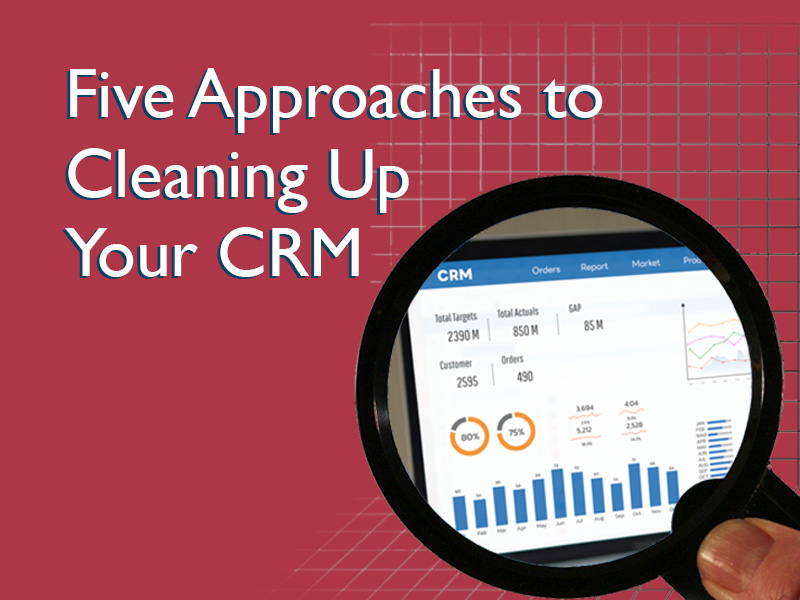
We’ve talked about how to help your sales personnel grow your business. But another way to help them is by making sure your customer relationship management (CRM) software is organized. If your CRM system is inaccessible and out of date, it could be costing you. In fact, if not regularly maintained and monitored, it could be wasting your time, your dollars, and may even hinder your sales team. So today we’ll talk about cleaning up your CRM.
Did you know that it’s pretty commonplace for companies to store even up to 20% of inaccurate and useless data, which ultimately can affect your CRM and lead to wasted resources.
When CRM Misses the Mark
In theory, a CRM system is a great idea and should add a lot of value. But if it’s messy, it can lead your sales team to miss the mark time and time again.
If you haven’t been cleaning up your CRM constantly, it can actually have negative consequences such as:
- Lowered sales productivity
- Failed initiatives to close sales, up-sell, or cross-sell
- Degradation of data
- Miscommunication with customers, which annoys them a lot!
- Customer frustration – customer experience (CX) counts for everything in a competitive world
- Drain on sales resources – your reps don’t have the things they need to do their job properly
- Lack of insight and understanding of your individual customers
- Inconsistent management reporting – leading to wrong data analysis
- Wasted budgets in both advertising and sales, which should be aligned anyway
- Operational inefficiencies
The list could go on and on, but we think you get the point! Now that you have an understanding of why poor CRM systems are bad news for your business, here are the approaches to take to get things in order.
Cleaning Up Your CRM
Even if you’re on top of your game and regularly review your CRM, the following tips can help ensure that your CRM is doing the most for your organization.
Whether you’ve never organized your CRM or you are looking for some general upkeep ideas, here are some recommendations.
1. Review Accounts
Go through all of your current accounts and contacts and remove or archive any inactive ones. This can help keep your sales team focused on the accounts that are presently important.
To go a step further in cleaning up your CRM, you could even utilize tags such as “disqualified” or “inactive” so that your sales team will keep them off reports and sales lists.
2. Remove Duplicates
It’s normal to have duplicate contact info or multiple contacts for one account. So the best practice here is to merge all info under one account name.
If your CRM doesn’t allow for merging, then assess and remove or archive any void contact info. This will automatically clear up a lot of space and keep things well organized for your sales team.
3. Identify Key Fields
What information do you and your sales team actually need?
Eliminate any unnecessary fields that are otherwise distracting. Once you have defined the key fields, make sure all contacts have correct information listed and all field areas filled out.
4. Assess Your Data
Typically, organizations stick with the default setting that came with their CRM.
However, you want to ensure you’re getting the most benefit from your system. Update your dashboards and look for opportunities to customize to get the right data for your sales team.
5. Integrate Sales Processes
Having a clear, concise, and consistent process across your organization can ensure everyone is on the same page.
If your sales process has six stages, then incorporate the same six stages in your CRM. Customize your CRM to match your sales processes exactly.
There is no standard when it comes to CRM. So for it to be truly effective, it needs to match your company’s unique needs. 360 Consulting provides a comprehensive sales approach equipped with all the right resources your sales team needs to succeed.
Learn more about our CRM solutions and how we can help you grow your business today! Schedule your FREE sales assessment here!
